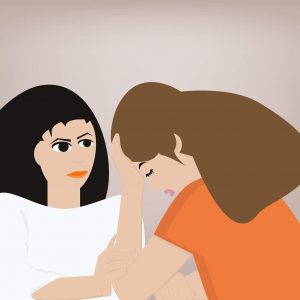HIV or Human Immunodeficiency Virus is a virus that harms the immune system. It is a sexually transmitted infection that destroys the white blood cells that help your body fight any infections. That puts the body at risk of acquiring major diseases or cancer. The reason why this infection is so deadly is that there is no cure for it. But some medications can strengthen the immune system and slow down the effects of the virus in the body.
If left untreated for long, the virus can reach its final stage resulting in AIDS (Acquired Immunodeficiency Syndrome). During this time, the body’s immune system becomes too weak to fight against diseases and infections.
With medication, the progression of the virus slows down dramatically. That is the reason why not everybody with the virus acquires AIDS. It’s the advanced stage of HIV, and just because a person has HIV, it doesn’t mean that AIDS will develop.
The virus targets the CD4 cells. A healthy count of CD4 is supposed to be between 500 to 160 per cubic millimeter. When the CD4 count falls below 200, the person develops AIDS. Untreated HIV can turn into AIDS within ten years and reduces a person’s life expectancy to around three years. It’s not the syndrome that directly shortens life expectancy but the diseases that arise due to a weak immune system.
A person living with AIDS is prone to several illnesses such as –
- Tuberculosis
- Pneumonia
- Cryptococcal meningitis
- Toxoplasmosis
- Lymphoma
- Cytomegalovirus
- Oral thrush
Table of Contents
How Does HIV Spread?
There are several ways in which HIV can spread.
- The virus can spread through unprotected sex between a healthy person and a person with an infection.
- It can spread via infected needles.
- The virus can also spread during childbirth from the infected mother to the child.
- The other ways of virus spread are through blood contact with the HIV-positive person.
- Oral sex in case there’s bleeding in the gums.
Busting Myths About Spread of HIV
Given below are some ways how the virus does not spread from an HIV-positive person to a healthy person.
- Hugging and casual contact do not spread HIV.
- HIV cannot transmit through air or water.
- Sharing food also does not spread the virus.
- The saliva or sweat of an HIV-positive person is not dangerous unless mixed with someone’s blood.
Symptoms of HIV
The initial symptoms of HIV can be like that of flu. But you must also look out for
- Chills
- Night sweats
- Sore throat
- Fatigue
- Mouth ulcers
- Muscle aches
- Fever
- Rashes
- Pneumonia
- Diarrhea
- Vomiting
During the early stages, the virus is transferrable even if there are no visible symptoms of its presence. Thus it is crucial to get tested in case of doubt. In the case of acute HIV, the symptoms may go away in a few weeks. But if it turns out to be chronic HIV, then it can have severe long-term effects.
During the initial stage of HIV, treatment can slow down the progression of the spread. If it does not slow down, it progresses to AIDS. With AIDS comes a damaged immune system and vulnerability to infections.
What are the Symptoms of AIDS?
Symptoms of AIDS include:
- Rapid weight loss
- Night sweats
- Dark splotches under the skin
- Chronic fatigue
- Recurrent fever
- Chronic diarrhea
- Neurological problems
- Anxiety
- Lesions on the skin
- Night sweats
There are treatments available to prevent AIDS from progressing and also for the infections that come with it.
How to Prevent HIV from Spreading?
Currently, there is no vaccine available that completely stops the transmission of HIV. But there are sure ways in which one can eliminate the risk of transmission by taking preventive measures.
- Getting tested
It is one of the first measures you can take towards preventing the transmission of the virus. So, make sure that you get tested for HIV as well as STIs.
- Use Condoms
Make sure that you practice safe sex and use a condom every time you have sex. Whether it is anal or vaginal intercourse, a condom can provide maximum protection from the virus.
- Go on PrEP
If you think you have a high risk of contracting HIV, you can consider PrEP or pre-exposure prophylaxis. It can reduce the risk of you getting HIV.
- Do not share needles.
Sharing needles with the infected person or similar paraphernalia can increase your chance of acquiring the virus.
How to know if You have HIV?
As mentioned above, if you see the symptoms, then you can consider getting tests done. But since there are no severe symptoms during the initial stages, thus making it hard to know.
You can always get tested for the infection to clear your doubts. You can either get it done from a lab or get a home testing kit to do the same.
Treatment for HIV
Once diagnosed with HIV, the treatment should start immediately. Antiretroviral therapy is done to slow down the progression of the virus. This treatment also reduces the risk of transmission from an infected person to a healthy person.
The treatment is targeted to protect the CD4 cells and keeping the immune system strong.
Effective treatment can result in undetectable viral load. In case a person stops the treatment, viral load can increase, and HIV attacks the CD4 cells.
Being on ART can lead to a healthy life in HIV-positive patients. The treatment can significantly increase life expectancy. With a healthy lifestyle, the quality of life may also get better.
There is a combination of medicines used for the treatment of HIV. Among those medicines include the Viropil tablet that prevents the HIV infection from multiplying in the body. Antiretroviral therapy can also cause side effects in some, including headache, dizziness, and nausea. Such symptoms usually appear for a short period and disappear soon. That is why it is important to get tested on time so that the doctor can figure out the right treatment with the least side effects to improve your quality of life and live with the infection without any fear.





